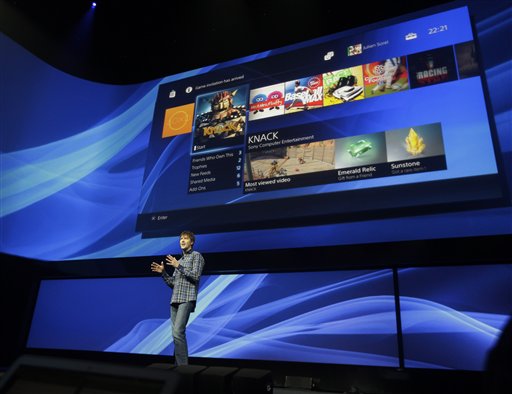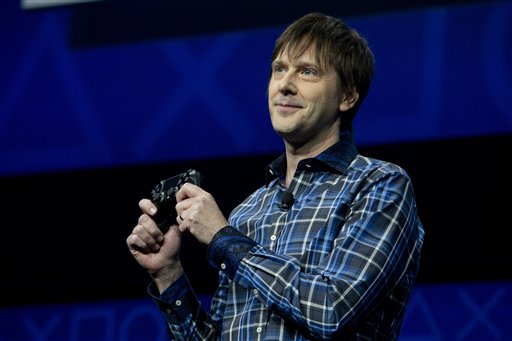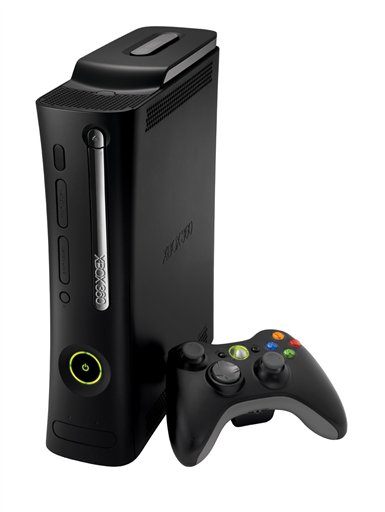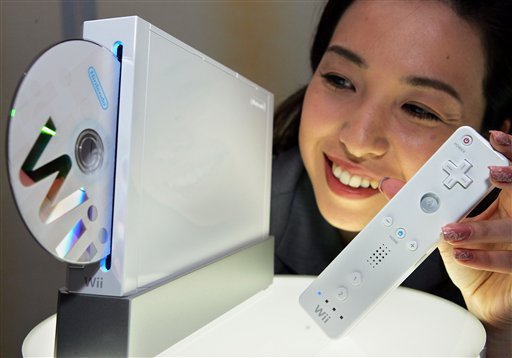PLAYSTATION 4: WHAT WE KNOWWhile Sony didn't reveal the actual design of the Playstation 4 hardware during its Feb. 20 announcement of its next-generation console, the company did provide the system's technical specifications:* Processor: AMD "Jaguar" 8-core processor.* Game disc medium: Blu-ray.* Graphic processor: AMD Radeon.* Memory: 8 gigabytes of GDDR5.* Resolution: Game content viewable at 1080p. Video and still images up to 4K (4300p).* Hard drive: A hard drive will be used, but sizes have not been announced.* Controller: Dualshock 4 wireless controller with touch pads, gyroscope, accelerometer and rumble function.* Headset: A mono audio-capable headset will be included that can plug directly into the controller.* Cameras: A Playstation Eye suite with dual cameras to detect controller movement will be included with the console.* Networking: Ethernet and wireless card with support for 802.11 b/g/n standardsCan you guess the CODE NAMES?Like many hardware manufacturers, the Playstation 4 was known by an internal code name, Orbis, prior to its official unveiling on Feb. 20. Microsoft's follow- up to the Xbox 360 is referred to as Durango or, unofficially, the Xbox 720. See if you can guess the names some other consoles went by before their official announcement.1. Atari 26002. Nintendo 643. Sony Playstation4. Nintendo Gameboy Advance5. Sega Dreamcast6. Microsoft Xbox7. Nintendo Gamecube8. Microsoft Xbox 3609. Nintendo Wii10. Nintendo Wii Ua. Dolphinb. Stellac. Atlantisd. PS-Xe. Project Caféf. Marzg. Xenonh. Revolutioni. Project Realityj. KatanaCODE ANSWERS1(b), 2(i), 3(d), 4(c), 5(j), 6(f), 7(a), 8(g), 9(h), 10(e).CONSOLE TIMELINE* First generation (1972-1975). Examples: Magnavox Odyssey.* Second second generation (1976-1984). Examples: Atari 2600 and Odyssey 2.* Third generation (1985-1988). Examples: Nintendo Entertainment System and Sega Master System.* Fourth generation (1989-1993). Examples: Sega Genesis and Super Nintendo Entertainment System.* Fifth generation (1994-1997). Examples: Nintendo 64, Sega Saturn and Sony Playstation.* Sixth generation (1998-2004). Examples: Microsoft Xbox, Nintendo Game Cube, Sega Dreamcast and Sony Playstation 2.* Seventh generation (2005-2011). Examples: Microsoft Xbox 360, Nintendo Wii and Playstation 3.* Eighth generation (2012-??). Examples: Nintendo Wii U and Playstation 4. A new system from Microsoft is presumed but has yet to be officially announced.
Usually, unveiling a new generation of video game consoles is cause for celebration among gamers, who get a glimpse at the hardware that will drive evolution in the medium for years.
For many, however, the next wave of consoles has been too long in coming.
Historically, the three major console manufacturers -- Nintendo, Microsoft and Sony -- have released new hardware on a four- to six-year cycle. For the upcoming eighth console generation, Microsoft and Sony have delayed announcing their newest systems longer than normal.
Sony finally made its official announcement of the Playstation 4 at a press conference on Feb. 20. If the company stays on schedule for a holiday release, the Playstation 4 will arrive seven years after the Playstation 3, the longest delay between generations of consoles.
Microsoft is remaining tight-lipped about its plans and has yet to announce a follow up to the Xbox 360, which launched eight years ago this November.
Gamers say they are getting frustrated at the lack of news.
"I believe Microsoft waited too long," says Eric Williams, 29, of Chattanooga, an avid gamer on the Xbox 360 and previous generations of consoles. "They're being so secretive about releasing details about the hardware."
Wii U: just catching up?
So far, only Nintendo has maintained its traditional release schedule with the North American launch of the Wii U on Nov. 18, almost six years to the day after the original Wii hit shelves.
The Wii was the last system to release in the current, seventh generation of consoles, and the company has marketed the Wii U as the first of the upcoming eighth generation.
However, whether the Wii U constitutes a truly next-generation system is heavily debated within the industry. Although it marks Nintendo's first console capable of high-definition, 1080p graphics, the device's processing power is roughly equivalent to that of current generation systems such as the Xbox 360 and Playstation 3.
"That just puts it in the same league as the PS3 and 360, and barely, at that," says Joel Ruiz, 25, of Chattanooga.
In a call to investors earlier this year, John Riccitiello, CEO of software publisher EA, said that, despite its potential, the Wii U hardware couldn't match the power of Sony and Microsoft's in-development hardware.
"I wouldn't say that we see a correlation between the results that Nintendo has shown with .... the Wii U and what we see coming," Riccitiello said, according to a Feb. 4 article on Forbes.com. "In many ways, we would argue that what we're describing as [next-gen] is yet to come."
A similar argument was made after the launch of the original Wii, which many gamers saw as a casual gaming machine buoyed by a then-revolutionary motion controller rather than a true competitor to Microsoft and Sony's systems.
Despite technical specifications that fell short of its competitors, the Wii has outsold Microsoft and Sony with lifetime sales of 99 million units as of Dec. 31, according to company statistics. By comparison, the Xbox 360 and Playstation 3 have sold 76 million and 77 million consoles, respectively.
Nevertheless, gamers expecting a noticeable leap from the next generation of consoles say the Wii U feels like more of a transitional device than the next step.
"The Wii U isn't doing anything we haven't seen before," says Rusty Lee, 29, of Chattanooga. "As much as I love Nintendo, the system and the games offered are hardly reason to shell out $300. I'll only buy it when [the next] 'Zelda' comes out. ... Until then, it's not even on my radar."
Tight lips
Speculation about Sony and Microsoft's next-generation consoles and their capabilities has run rampant since early in the life cycles of the Playstation 3 and Xbox 360 .
In September 2008, less than two years after the Playstation 3's release, bloggers and analysts already were discussing rumors of Sony's next console, proposing a potential launch by 2010. The same year, writers were projecting a 2011 or 2012 launch of Microsoft's next console, even suggesting "Halo 4" (released Nov. 6) as a potential launch title.
In a Jan. 12, 2008, article, Dallas Morning News writer Victor Godinez suggested the next Xbox was just around the corner.
"One glance at a calendar suggests it won't be long before we start hearing all sorts of tidbits about the Xbox 720," Godinez wrote, citing the four-year span between the launch of the original Xbox and the Xbox 360.
"Repeating that four-year lifespan, the 720 ... should come out, um, let's see, next year!"
That was more than five years ago.
The next playstation
Less than a month before the official unveiling of Playstation 4, Sony President Kazuo Hirai suggested that Sony would wait for Microsoft to unveil its next console before it pulled back the curtain on its own next-gen hardware.
"Why go first, when your competitors can look at your specifications and come up with something better?" Hirai said in a Jan. 21 interview with the Times of London.
Instead, on Feb. 20, Sony broke radio silence by announcing the Playstation 4 at a special event in New York City.
During the event, Sony executives and engineers and a slew of developers demonstrated the system's capabilities, including social media sharing capabilities, its integration of cloud-based content streaming service Gaikai and a more personalized experience on the digital Playstation Store. The presentation also featured demo footage from several in-development titles, including new entries in the company's flagship "Killzone" and "inFAMOUS" franchises.
Lead system architect Mark Cerny said during his presentation that the Playstation 4 had been in development for five years. After waiting so long for information about a new console, however, some gamers say they were disappointed by what wasn't discussed at the event, which failed to show any actual hardware or designate a release date or price for the console.
To some, the conspicuous absence of even a prototype onstage at the announcement made the event feel rushed, an attempt by Sony to get word out early about its console ahead of Microsoft, which released the Xbox 360 about a year ahead of the Playstation 3.
And as good as the early titles look, they won't necessarily translate into rewarding final products, says Lorin Jones, 28, of St. Elmo.
"It seemed pretty apparent that Sony wanted to get the drop on Microsoft," Jones says. "Of course, the graphics are impressive, but that doesn't necessarily mean the games will be."
What about the next Xbox?
Like Sony, Microsoft has been quiet about its next-generation plans, but following the Playstation 4 unveiling, speculation online is that the Redmond, Wash.-based company could be announcing the Xbox's successor as early as April. Sources including Kotaku.com, a video game website, and NeoGAF, a respected Internet gaming forum, have pointed to a spring unveiling.
other questions
At least one lingering question at Sony's announcement was whether the console would continue to play used copies of games or, as rumor suggested, lock copies of games to a single console.
During a post-announcement roundtable discussion, Sony Worldwide Studios president Shuhei Yoshida told media outlets that the system would continue to support used games, adding, "That's the general expectation by consumers."
Microsoft has yet to address similar concerns about its presumed future console.
In the coming months, Yoshida said, Sony will share more details on the Playstation 4, including final hardware design, price and release date.
Japanese news outlet Asahi Shinbun predicted before the announcement that the new console would launch at $430, which some gamers say is at the ceiling of what they consider reasonable.
"I'd be willing to pay $399," says Eric Williams, 29, of Chattanooga. "If it's $500, I'd wait quite a bit until I can get a better deal."
By waiting so long to announce their newest consoles, some gamers and developers suggest Microsoft and Sony are facing a decidedly uphill battle in the next generation.
PC and Xbox 360 gamer Scott Gill, 24, of Chattanooga, says he doesn't feel rushed to upgrade to a next-generation system when currently available computer hardware already is more powerful than this generation's consoles.
"I would have to say I was underwhelmed [by the Playstation 4]," Gill says. "I still feel confined with a console, and I probably won't make a switch until upgrading and customizing [components] are integrated into these systems."
Yves Guillemot is the CEO of developer Ubisoft, makers of AAA franchises such as "Assassin's Creed" and "Tom Clancy's Splinter Cell." In a December interview, he suggested the release of a new generation will help revive the video game industry, which faced 11 straight months of flagging software and hardware sales industry-wide in 2012, according to statistics from industry tracking firm NPD.
Guillemot told gaming website Polygon that prolonging the current console cycle has led to a lack of innovation in gaming, and new consoles could be the magic bullet to reinvigorate developers.
"We need new consoles, and at the end of the cycle, generally the market goes down because there are less new ... properties, so that damaged the industry a little bit," he said.
Even if he shares the concerns of many other gamers about future gaming consoles, Ruiz says he'll probably hop on the next-gen bandwagon eventually.
"I'm excited about a PS4," he admits. "I'll talk bad about it all day, but I'll buy one."




